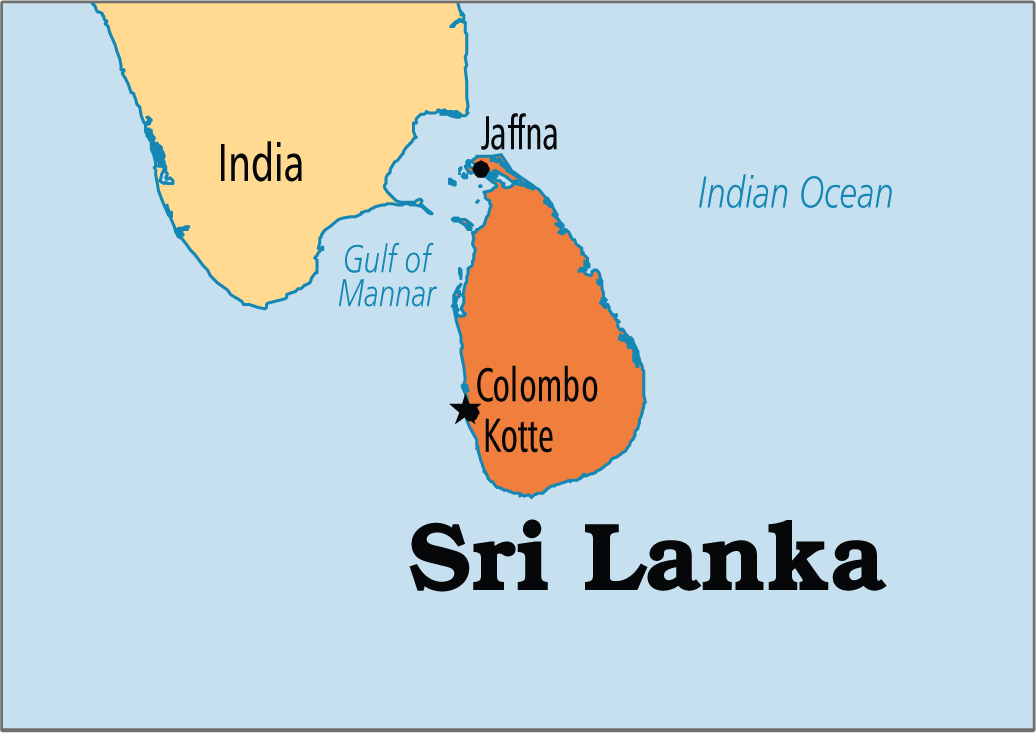India Sri Lanka Relations | 23 Jan 2023
For Prelims: International Monetary Fund (IMF), Sri Lanka’s official creditors, World Bank, Global Financial Stability Report, India-Sri Lanka Free Trade Agreement, 13th Amendment of Sri Lankan Constitution.
For Mains: India Sri Lanka Relations, Recent Issues in India-Sri Lanka Relations.
Why in News?
India sent written financing assurances to the International Monetary Fund (IMF), becoming the first bilateral creditor of the island nation to officially support its crucial debt restructure programme after last year’s economic meltdown.
- A bilateral agreement between India and Sri Lanka on raising the limit of the High Impact Community Development Project (HICDP) was also signed during the India’s External Affairs Minister’s Visit.
What is the Significance of India’s Financing Assurance?
- The International Monetary Fund’s provisional USD 2.9 billion package to Sri Lanka will be cleared only after Sri Lanka’s official creditors — China, Japan and India — have provided adequate financing assurances.
- The decision of financing assurance was also a reassertion of India’s belief in the principle of “neighborhood first”, and not leaving a partner to fend for themselves.
How are India’s Relations with Sri Lanka?
- About:
- India and Sri Lanka are two South Asian nations situated in the Indian Ocean region. Geographically, Sri Lanka is located just off the southern coast of India, separated by the Palk Strait.
- This proximity has played a significant role in shaping the relationship between the two countries.
- The Indian Ocean is a strategically important waterway for trade and military operations, and Sri Lanka's location at the crossroads of major shipping lanes makes it a critical point of control for India.
- India and Sri Lanka are two South Asian nations situated in the Indian Ocean region. Geographically, Sri Lanka is located just off the southern coast of India, separated by the Palk Strait.
- Relations:
- Historical Ties: India and Sri Lanka have a long history of cultural, religious, and trade ties dating back to ancient times.
- Economic ties: India is Sri Lanka’s third largest export destination, after the US and UK. More than 60% of Sri Lanka’s exports enjoy the benefits of the India-Sri Lanka Free Trade Agreement. India is also a major investor in Sri Lanka.
- Foreign Direct Investment (FDI) from India amounted to around USD 1.7 billion over the years from 2005 to 2019.
- Defence: India and Sri Lanka conduct joint Military (Mitra Shakti) and Naval exercise (SLINEX).
- Issues in India-Sri Lanka Relations:
- Killing of Fishermen: Killing of Indian fishermen by the Sri Lankan Navy is a lingering issue between these two nations.
- In 2019 and 2020, a total of 284 Indian fishermen were arrested and a total of 53 Indian boats were confiscated by the Sri Lankan authorities.
- Influence of China: China’s rapidly growing economic footprint (and political clout as a corollary) in Sri Lanka is straining India-Sri Lanka relations.
- China is already the largest investor in Sri Lanka, accounting for 23.6% of the total Foreign Direct Investment (FDI) during 2010-2019 as against 10.4% from India.
- 13th Amendment of the Sri Lankan Constitution: It envisages devolution of necessary powers to the provincial councils to address the just demand of the Tamil people for equality, justice, peace, and respect within a united Sri Lanka.
- India supports its implementation but the Sri Lankan government is yet to “fully implement” the 13th Amendment.
- Killing of Fishermen: Killing of Indian fishermen by the Sri Lankan Navy is a lingering issue between these two nations.
What is the International Monetary Fund (IMF)?
- About:
- The IMF was set up along with the World Bank after the Second World War to assist in the reconstruction of war-ravaged countries.
- The two organizations agreed to be set up at a conference in Bretton Woods in the US. Hence, they are known as the Bretton Woods twins.
- The IMF is governed by and accountable to the 190 countries that make up its near-global membership.
- India joined on 27th December 1945.
- The IMF was set up along with the World Bank after the Second World War to assist in the reconstruction of war-ravaged countries.
- Purpose:
- The IMF's primary purpose is to ensure the stability of the international monetary system — the system of exchange rates and international payments that enables countries (and their citizens) to transact with each other.
- The Fund's mandate was updated in 2012 to include all macroeconomic and financial sector issues that bear on global stability.
- Reports by IMF:
- Global Financial Stability Report.
- World Economic Outlook.
Conclusion
India, which has followed the "Neighbourhood First policy" to cement bonds with its neighbours, can walk that extra mile to help Sri Lanka out of the current crisis and help Sri Lanka towards realising its potential, to reap the rewards of a stable, friendly neighbourhood.
UPSC Civil Services Examination, Previous Year Questions (PYQs)
Prelims
Q. Elephant Pass, sometimes seen in the news, is mentioned in the context of the affairs of which one of the following? (2009)
(a) Bangladesh
(b) India
(c) Nepal
(d) Sri Lanka
Ans: (d)
Mains
Q. In respect of India-Sri Lanka relations, discuss how domestic factors influence foreign policy. (2013)
Q. ‘India is an age-old friend of Sri Lanka.’ Discuss India's role in the recent crisis in Sri Lanka in the light of the preceding statement. (2022)

